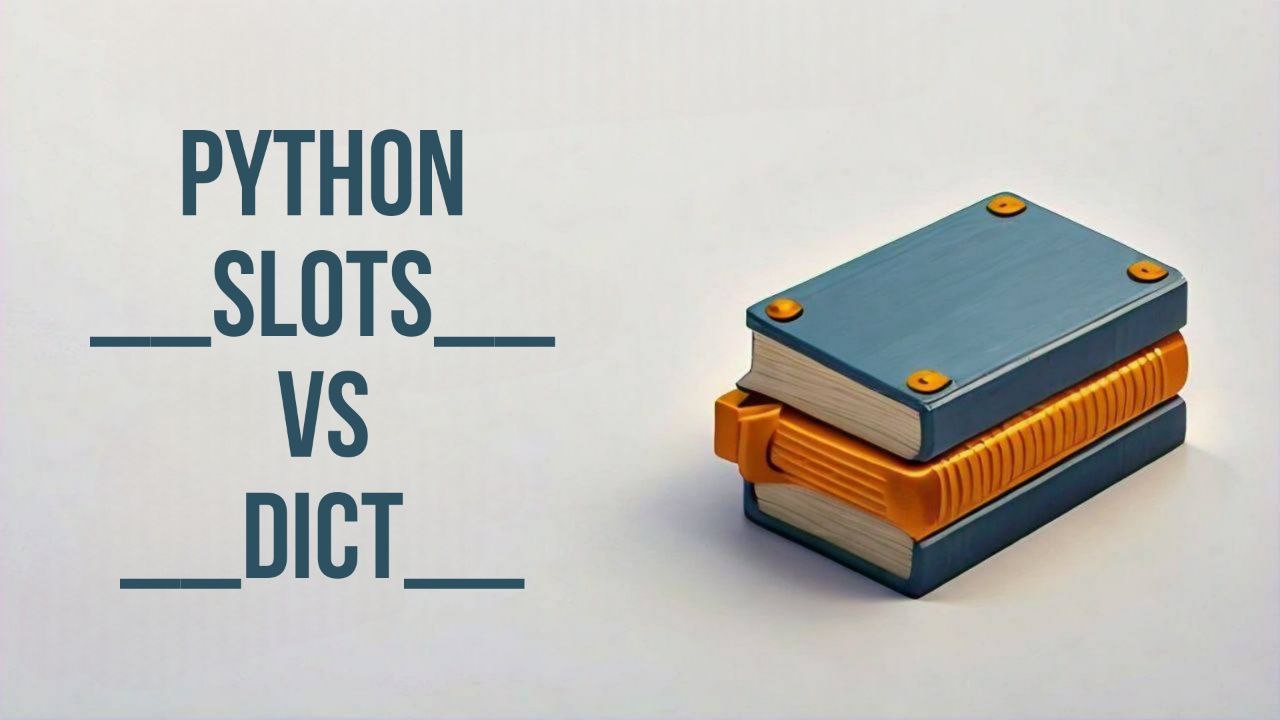Introduction
In Python, there are two main ways to define attributes for a class: using the default `__dict__` attribute or using `__slots__`. Understanding the difference between these two approaches is crucial for optimizing your Python code, especially when dealing with large numbers of objects or memory-constrained environments.
The __dict__ Attribute
By default, Python uses a dictionary to store an object’s instance variables. This dictionary is accessed through the `__dict__` attribute.
Pros of __dict__:
- Dynamic: New attributes can be added to objects at any time.
- Flexible: Great for situations where you don’t know all attributes beforehand.
Cons of __dict__:
- Memory overhead: Each instance carries the dictionary overhead.
- Slower access: Dictionary lookups are slightly slower than direct attribute access.
Example of __dict__ usage:
class Person:
def __init__(self, name, age):
self.name = name
self.age = age
person = Person("Alice", 30)
print(person.__dict__) # Output: {'name': 'Alice', 'age': 30}
person.job = "Developer" # Dynamically add a new attribute
print(person.__dict__) # Output: {'name': 'Alice', 'age': 30, 'job': 'Developer'}
The __slots__ Attribute
`__slots__` is a class variable that can be assigned a sequence of strings naming the attributes you want to use. When `__slots__` is defined, Python uses a more compact internal representation for instances.
Pros of __slots__:
- Memory efficient: Reduces memory overhead for each instance.
- Faster attribute access: Slightly faster than dictionary lookup.
- Prevents accidental creation of new attributes.
Cons of __slots__:
- Less flexible: Can’t add new attributes dynamically.
- Inheritance can be tricky: Requires careful handling when using inheritance.
Example of __slots__ usage:
class Person:
__slots__ = ['name', 'age']
def __init__(self, name, age):
self.name = name
self.age = age
person = Person("Bob", 25)
print(person.name) # Output: Bob
person.job = "Engineer" # Raises AttributeError
When to Use __slots__ vs __dict__
Use `__slots__` when:
- You’re creating a large number of objects.
- Memory usage is a concern.
- You want to “lock down” attributes to prevent accidental additions.
Use `__dict__` (default behavior) when:
- You need flexibility to add attributes dynamically.
- You’re not dealing with a large number of instances.
- Memory optimization isn’t a primary concern.
Performance Comparison
Here’s a simple benchmark to illustrate the difference:
import sys
class WithDict:
def __init__(self, x, y):
self.x = x
self.y = y
class WithSlots:
__slots__ = ['x', 'y']
def __init__(self, x, y):
self.x = x
self.y = y
dict_obj = WithDict(1, 2)
slots_obj = WithSlots(1, 2)
print(f"WithDict size: {sys.getsizeof(dict_obj)} bytes")
print(f"WithSlots size: {sys.getsizeof(slots_obj)} bytes")
On most systems, you’ll see that the `WithSlots` instance uses significantly less memory.
Conclusion
Choosing between `__slots__` and `__dict__` depends on your specific use case. If you’re working with a large number of objects and memory efficiency is crucial, `__slots__` can provide significant benefits. However, if you need the flexibility to add attributes dynamically or are working on a smaller scale, the default `__dict__` behavior might be more appropriate.
Remember, premature optimization is the root of all evil. Profile your application first to determine if the memory savings from `__slots__` will make a significant difference before implementing it.

